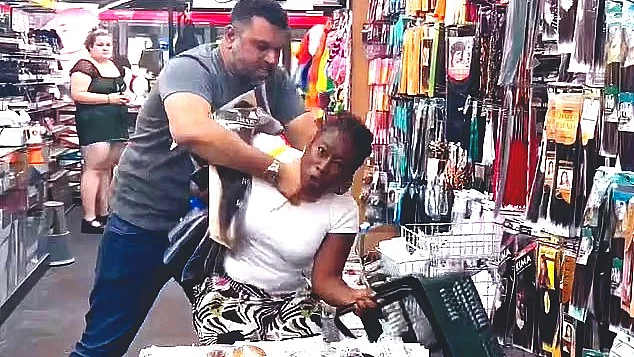London Diary: Asians at the receiving end of black racism
The protests followed a scuffle between an Indian-origin owner of a cosmetics store and a black woman who had apparently gone there to seek a refund for certain things she had bought from the store

If you thought racism was only what Whites do to non-Whites, consider these handwritten slogans that appeared in a London neighbourhood: ‘Racist Asians go to hell’, and ‘Parasitic merchants out of our community’.
Peckham is a predominantly African-Caribbean area in South London and a recent influx of Indian immigrants who have been buying up businesses and properties has upset black groups. They say Asian people are trying to monopolise the beauty cosmetics sector until recently controlled by the black community.
Indians allege that they are constantly targeted at the slightest provocation. But what happened recently was unprecedented with blacks openly calling a boycott of non-black businesses.
The protests followed a scuffle between Sohail Sindho, Indian-origin owner of a cosmetics store, and a black female customer.
In a video of the incident, Sindho appears to put his hands around her throat during the altercation to prevent her from leaving the shop with items she had not paid for. Apparently, the woman had gone there to seek a refund for certain things she had bought earlier and wanted to return them.
Sindho said: “We do not give refunds; we exchange items or give a credit note. So she grabbed some stuff (three items worth £24) from the shelf and tried to leave.”
Following violent protests, he was forced to close his shop and go into hiding. He has taken his kids out of school fearing they may be targeted.
“I feel like I’m in a war zone... they are threatening me. Activists are using this as a racial issue. I don’t know if I can return to my shop. I have no idea where to go from here,” he told reporters.
Meanwhile, many Asians used lazy stereotypes to describe black people accusing them of lacking a “work ethic”.
However, social integration groups urged the people stop viewing such incidents through the “prism of race”.
Local residents said Peckham, once celebrated for its vibrant multiculturalism, would never be the same again.
---
Drinking to the clock
Want to go to a pub for a quick drink? Once upon a time, you were more likely to have jumped at the idea: “Yes, why not? Let’s go.” But now you’re more likely to look at your watch and, depending on the time, say yes or no.
This is because Uber-style ‘surge pricing’ is spreading to other businesses, and the first to catch the infection is the hospitality sector, especially the pubs.
Now the price of a drink depends on the time of day.
One of Britain’s biggest pub chains now charges 20 pence more for a pint during the busiest times under the new ‘dynamic’ pricing system. The explanation is that it is meant to help cover extra costs such as door staff, more washing up and paying extra workers. It is the reverse of the ‘happy hours’ principle when drinks cost less at certain times.
Pubs are facing an existential crisis because of a surge in running costs with more than 150 having closed permanently this year.
---
Whisky and women
While on the subject of drinking, a third of women working in Britain’s whisky industry have been found to have been touched inappropriately by their male colleagues, according to a study of sexism in the alcohol industry—claimed to be the first global survey of women working in the whisky sector.

It revealed widespread examples of ‘unconscious bias’ and ‘micro-aggressions’ against women, which it said could ‘build up over time to have a devastating impact’. Seven out of ten women said they had experienced inappropriate or sexual comments at work.
The worst-affected were those working in consumer-facing roles, such as brand ambassadors, and staff in shops, pubs and bars.
Whisky companies have been urged to improve women’s representation in their advertising and marketing, and to avoid stereotyping.
It’s like telling turkeys to avoid Christmas.
---
Soap or sausage?
Britain has been dubbed a ‘nation of soap dodgers’ as sales of personal hygiene products have slumped amid the cost of living crisis resulting in ‘hygiene poverty’. It is defined as ‘not being able to afford many of the everyday hygiene and personal grooming products most of us take for granted’.
According to experts, the data indicates how price-sensitive consumers have become. Faced with the choice between having a hot bath than putting food on the table they would rather forego a bath than see their children go hungry.

The Hygiene Bank, a charity, said this meant people were skipping baths and forced to wash their hair and clothes in the same cheap washing-up liquid used for dishes.
Demand for soap fell by 48 per cent in the first six months of this year compared to the same period last year, while sales of hand wash are down 23 per cent. And the slippery slope continues...

And, lastly, welcome Insta husbands—men who do all the leg work for their ‘influencer’ wives. It was coined by comedian Jeff Houghton. “Behind every cute girl on Instagram is a guy like me,” he said. “I’m basically a human selfie stick.”
Follow us on: Facebook, Twitter, Google News, Instagram
Join our official telegram channel (@nationalherald) and stay updated with the latest headlines
